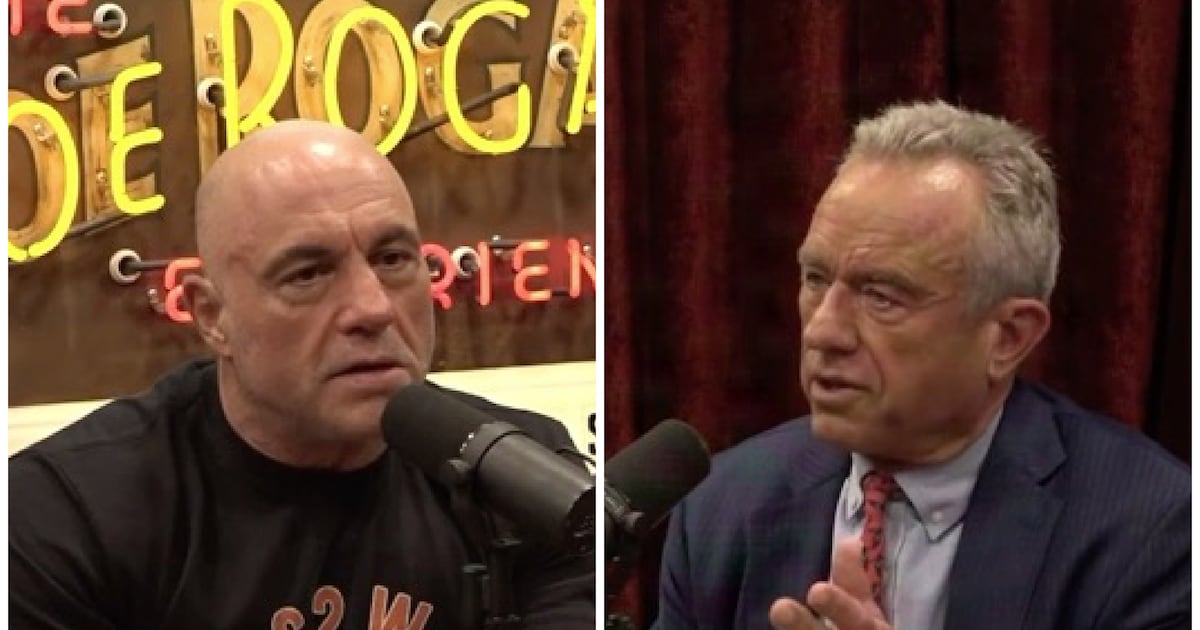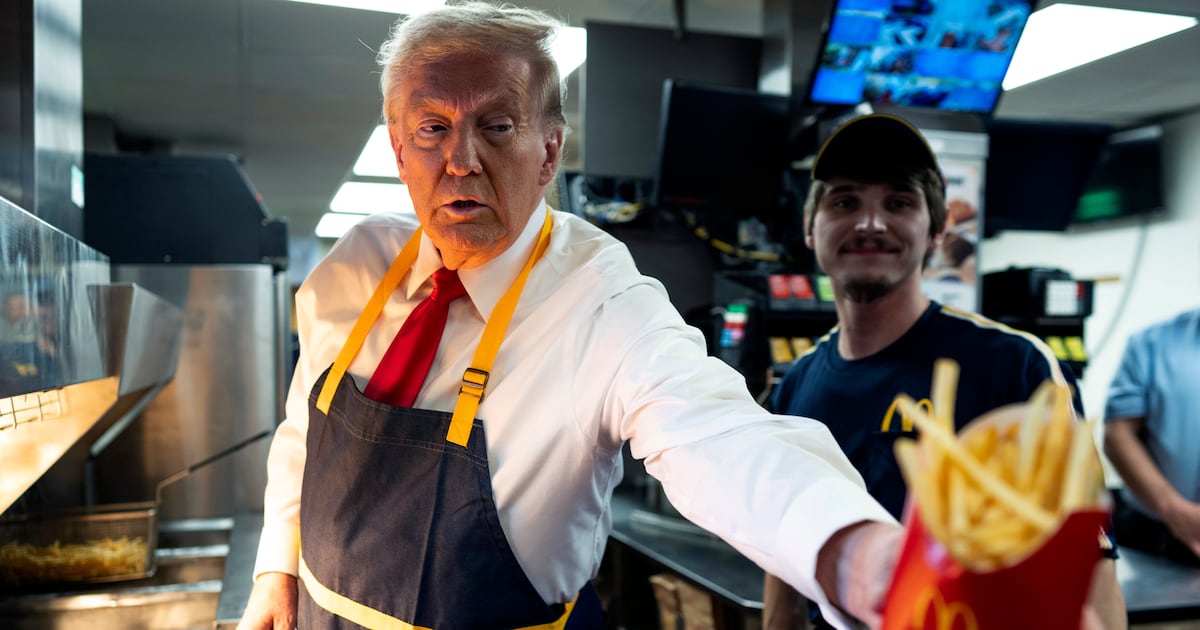Bounding onto the stage at the “March for Our Lives” rally this past Saturday, Parkland student David Hogg held up a prop price tag and declared, “I’m going to start off by putting this price tag right here as a reminder for you guys to know how much Marco Rubio took for every student’s life in Florida.”
He was referencing the campaign donations Rubio has received from the National Rifle Association, as well as expenditures the group has made on the Senator’s behalf throughout the course of his career.
The prop had its effect: raising eyebrows, sparking debate, and facilitating a fair amount of complaining about its inherent unfairness. It also spotlighted one of the more interesting trends in politics today: There’s something about Marco Rubio that people just seem to hate.
It was evident elsewhere at Saturday’s march. One placard managed to attack Rubio’s Catholic faith (the march was taking place the day before Palm Sunday), while simultaneously calling him an “#NRAbitch” and a “#KidKiller.”
By this point, Rubio should be accustomed to the incoming.
Rubio worked hard to pass bipartisan immigration reform in 2013, taking on the role of selling the bill to conservative talk radio. It was a political suicide mission if there ever was one and, sure enough, the conservative wunderkind invited all sorts of scurrilous criticism from the right.
Now, having made the decision to go against conservative orthodoxy and call for some moderate gun safety reform measures, Rubio finds himself under a heap of anger. The very people who ostensibly need his help to achieve their goals—activists who need Republican lawmakers to support those very measures—have booed him at a post-Parkland, CNN town hall and attacked him at Sunday’s gun control march.
Ironically, Rubio seems to be working diligently on this issue. Over at RedState, Sarah Rumpf has an extensive list of the things Rubio has done since the shooting. CNN’s Alisyn Camerota recently noted, “In fact, there is a lot that he has been doing behind the scenes.” Rubio, she continued, “has met and called victims and victim’s families, he participated, of course, in the CNN town hall. He has also bucked his own party and the NRA to support raising the age limit to buy some guns from 18 to 21. This week, he and fellow Florida Senator Bill Nelson announced a bipartisan bill to try to keep people with mental health issues from having guns…”
So why all the hostility toward Marco Rubio? It’s impossible to know, for sure, but there are theories.
First, the left may view him as a serious threat. Rubio is young and Hispanic. He speaks Spanish fluently. He’s the son of a bartender who made good. He has a beautiful wife and family. Theoretically, he can appeal to a wider demographic range than any other national Republican. Of course, that appeal was limited during the course of the 2016 Republican primary when the party showed its preference, instead, for a vulgar septuagenarian who doubles down on the votes of working-class whites. And for that reason, I’d say Democrats are now past worrying that Rubio is an existential threat.
It’s also true that unlike Democrats (see John F. Kennedy and Bill Clinton), Republican voters have never really embraced their youth movement. The two recent times the party tried it (see Dan Quayle and Sarah Palin) were rather disastrous examples where a candidate was thrust on voters, via selection as presidential running mates.
I think a more compelling argument is that if someone bends on their beliefs, they are viewed, often, as being opportunistic more than constructive. Rubio has suffered from this more than anyone. That may be fair to him or not. But it certainly shows just how little political upside there is in trying to compromise, find a solution, and make peace.
And, make no mistake, Rubio is attempting to find middle ground. His reforms include gun violence restraining orders, making it easier for the National Instant Criminal Background Check system to flag people who aren’t allowed to buy guns, and, according to CNN, “he’s open to considering legislation that would raise the age to buy rifles from 18 to 21, and open to reconsidering the size of magazines.” Achieving these modest reforms might, ironically, be bad news for the left. As HotAir’s Allahpundit explains,“Agreeing to Rubio’s [gun] proposals might actually damage the cause of banning guns since it might sate the public’s appetite for greater regulation, at least for a good long while. They want all the guns, and increasingly they’re not shy about saying so.”
Though cynical, this is not an absurd point. Nobody who actually wants moderate gun reform would attack Rubio. If the left is serious about getting something done in this Congress, they need to work with Rubio and not insult him. If the left is going to disparage everyone that takes NRA donations, then how do we get to 60 votes in the Senate?
So why do they attack him? Much of the criticism aimed at Rubio seems to be premised on the notion that he’s a spineless phony, trying to pretend he’s interested in compromise, but lacking the will or conviction to actually do something.
On this front, however, Rubio is no different (indeed, he may be better) than many of his colleagues and past Senate members. Think of it. Shrewder senators, like Barack Obama (in 2007) and Ted Cruz (in 2013), were always theoretically in favor of doing something to fix immigration, even if no specific bill (that actually had a chance of passing) ever quite measured up. For having the temerity to try to fix our broken immigration system, Rubio was falsely attacked by right-wing outlets like Breitbart.com, which even made up a story that the 2013 Senate immigration bill included government handing out free cell phones. And when he determined that the bill didn’t have a chance of making its way through the House, he walked away—a move that is hardly impractical but was nevertheless interpreted as cowardice.
Now, Marco Rubio is favoring some modest gun safety reforms—the kinds of first steps that any intellectually honest person who truly wants to do something to prevent the next mass shooting might endorse—and he is being predictably attacked by both sides.
When a young politician named Bill Clinton stands up to his base, it’s called a “Sister Souljah moment” and is heralded as an example of his toughness and heroism. When a young Marco Rubio does it, he’s a weak sellout to his base—and a poseur to his adversaries. I’m not sure why this double standard exists.
If one were to derive an object lesson from Rubio’s political career, it might be this: Don’t try to change things. Stick with your tribe. Don’t ever try to find real solutions. And don’t accept invitations to speak to groups that might possibly be hostile to your position. Play it safe.
Marco Rubio is the living embodiment of a very old maxim: No good deed goes unpunished.
If you venture in the middle of the road too many times, sooner or later, you’re bound to get run over.






